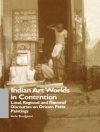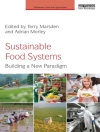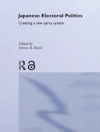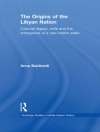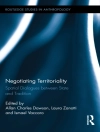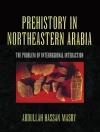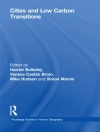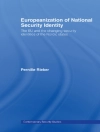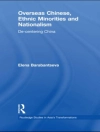This book is the proceedings of the International Conference on Water Contamination Emergencies: Monitoring, Understanding, Acting held in October 2010. The fourth in a series of conference proceedings this book develops themes from three previous, highly successful Water Contamination conferences in addition to dealing specifically with four new principle themes: monitoring, understanding, acting and lessons learned. With contributions from leading scientists and experts in academia and industry it offers a truly international perspective on our ability to deal with water contamination emergencies. Emphasis is given to prevention, strategy and unusual emergency incident situations relating to drinking water. The book appeals across the board from public health and environmental professionals to companies, agencies, regulators and experts involved in emergency planning and response.
Tabella dei contenuti
Preface;
Drinking water safety: guidance to health and water professionals – and other health protection issues on water safety;
A novel approach for early warning of drinking water contamination events;
Detection and identification of microbial contamination;
Validation of a water quality monitoring platform in Barcelona drinking water treatment plant;
Rapid confirmation of microbiological alerts using off-line molecular methods;
Improving quality and saving dollars using real-time online water quality monitoring;
Clean data and reliable event detection – turning results from online sensors into information;
Is it real or isn’t it? Addressing early warning system alarms;
Selection and prioritization of substances relevant for intentional drinking water contamination;
The need for a joined up approach to the provision, management, security and delivery of alternative drinking water supplies;
Communicating with the public about risk;
Potable water contamination emergency: – The analytical challenge;
Some examples of the operation and benefits of the UK water laboratories’ mutual aid scheme;
Development of a rapid gross alpha & beta method for the water industry;
A Scandinavian emergency for drinking water network contamination: the Nokia case study;
Sensors and webservices for land & water management;
Graph decomposition as operative tool in hydraulic system analysis – security aspects;
Efficacy of free chlorine against water biofilms and spores of Penicillium brevicompactum;
Near real time monitoring of E. coli in water
Circa l’autore
Over the last 40 years, Prof. Thompson has gained very broad experience in the management of environmental laboratories. He has managed laboratories at both Severn Trent and Yorkshire Water. He is currently Chief Scientist of ALcontrol UK. ALcontrol Laboratories employs over 1600 staff in the UK and mainland Europe in 11 countries. It is one of the largest contract water, soil air and food analysis laboratory organisations in Europe. He set up the UK water laboratories mutual aid group in 1995 and still chairs this group and is active on a number of ISO/CEN and British Standard committees. He has published over 60 papers and a number of books. Ulrich Borchers has been working with the IWW Water Centre in Muelheim/Ruhr (Germany) since 1993, in different executive positions. Since 2002 he has been Manager of the Water Quality Department and Authorised Officer of the Water Centre. His routine lab and the R&D group comprise nearly 55 scientists from various disciplines and technical staff as well. In 2004 he was also appointed Technical Chief Executive Officer of the IWW NORD, a branch of the IWW Water Centre in Northern Germany. The focus of Ulrich Borchers’ work is on instrumental chemical (organic and inorganic) and microbiological water analysis, as well as on the examination and assessment of different types of water and water treatment chemicals. Furthermore, he is active in the field of organising national and international PTs for water parameters and he also has long-term experience as lecturer at the ‘Academy of Public Health’ in Duesseldorf, Germany (education of health authorities¦ staff). He has been the Chair of several European Conferences in the field of Water Policy and organises annual conferences on PT schemes for drinking water laboratories in the framework of the German Drinking Water Regulation. Finally, Ulrich is active in the field of European (CEN) and International (ISO) standardisation of analytical methods and is involved with several activities around the implementation of European Water Directives (e.g. Water Framework Directive, Drinking Water Directive, Groundwater Directive) in co-operation with the General Directorate Environment of the European Commission (EU DG ENV) in Brussels. He has published about 45 papers in international literature and several books. Professor Professor Peter A. Williams currently holds position as Academic Leader, Materials and Analytical Science, Director, Materials Science Research Centre, Glyndwr University, UK. He was first appointed as Research Scientist at Glyndwr University in 1978 before becoming Senior Research Scientist in 1986, Reader in 1990, Director Centre for Water Soluble Polymers 1994, Professor Polymer and Colloid Chemistry in 1996, Director Materials Science Research Centre 2006 and as Academic Leader Materials and Analytical Sciences in 2010. His work has concentrated on the synthesis, characterisation, properties and applications of a broad range of polysaccharides and synthetic water soluble polymers.


